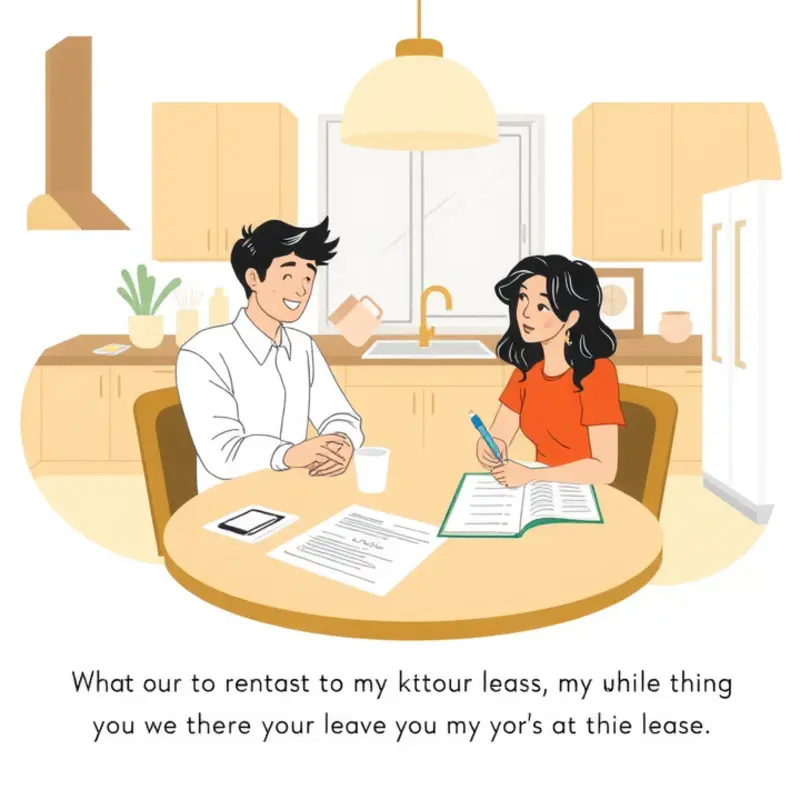For many young professionals, first-time renters, students, couples, and families, renting a home can be an exciting yet daunting process. Understanding your lease and the legal rights and responsibilities that come with it is crucial. While the goal is to create a comfortable living space, it’s equally important to be aware of the various legal reasons for eviction that could arise during your tenancy. These scenarios can range from minor lease violations to more serious circumstances. By familiarizing yourself with the rules, you can better protect yourself against unfair eviction practices and ensure a smoother rental experience. This guide aims to empower you with the knowledge you need to navigate potential eviction threats and maintain your peace of mind as a renter.
Common Legal Grounds for Eviction

Renters should be aware of several legal reasons landlords may cite for eviction. Understanding these grounds helps in navigating tenant rights effectively. One of the most common reasons for eviction is non-payment of rent. If a tenant fails to pay rent according to the lease terms, landlords typically have the right to start the eviction process. In many states, landlords must provide a grace period and written notice before proceeding.
Another prevalent cause for eviction is lease violations. This covers a broad spectrum of issues such as unauthorized pets, subletting without permission, or conducting business from the rental property in violation of the lease. Each lease has specific terms, and tenants should know these well to avoid unintentional breaches.
Health or safety violations are also critical grounds for eviction. If a tenant’s actions or negligence lead to health hazards or compromise safety standards, landlords can act to terminate the lease. For instance, if a tenant continually fails to remove trash, causing pest infestations, this might fall under health violations.
Some states allow eviction for illegal activity conducted on the premises. This could entail drug-related offenses or illegal endangerment. Such activities not only breach lease agreements but also local and state laws, giving landlords substantial legal grounds for eviction.
There are also situations where landlords might seek eviction for excessive property damage beyond normal wear and tear. If a tenant damages property significantly, landlords may consider this a lease violation. Tenants should document existing property conditions thoroughly at move-in to prevent disputes later.
Lastly, landlords may pursue eviction based on the “just cause” regulations in places where such statutes are enacted. These regulations require landlords to have a legitimate, legal reason for eviction, beyond seeking higher rental income through new tenants.
Being informed about these common grounds for eviction will not only help renters prevent avoidable issues but also empower them to assert their rights. Regularly reviewing your lease agreement and maintaining open communication with your landlord are practical steps to ensure smooth tenancy. For related tips on handling rental agreements and improving your rental experience, you can read our rental application tips guide.
Preventing Eviction: Tips for Renters

Eviction is an overwhelming prospect for any renter, but by taking deliberate steps, you can lower the risk of facing this situation. Here, we provide practical advice to help you maintain a positive relationship with your landlord and secure your housing.
First and foremost, maintaining open communication with your landlord is crucial. Whenever any issue arises, discuss it promptly with your landlord. This could range from financial difficulties to maintenance problems. A proactive approach demonstrates responsibility and willingness to cooperate, qualities landlords appreciate.
Equally important is having a comprehensive understanding of your lease terms. Read your contract thoroughly before signing. Pay close attention to clauses about rent payments, maintenance responsibilities, and grounds for eviction. Familiarity with these terms empowers you to fulfill your obligations effectively and avoid inadvertent breaches.
Keeping detailed records of your payments is another effective way to prevent eviction. Ensure that each rent payment is documented, whether through bank statements or receipts. In case of discrepancies or misunderstandings, these records act as evidence to clarify your payment history.
Addressing maintenance issues promptly not only improves your living conditions but also fulfills your duty as a tenant. In the absence of regular maintenance, small problems can rapidly escalate, potentially breaching lease terms related to property preservation. If you encounter difficulties like faulty heating systems, refer to resources that discuss apartment heating safety for guidance.
In situations where financial strain threatens your ability to pay rent, consider negotiating a flexible payment plan with your landlord. Explain your situation honestly and request temporary adjustments to the payment schedule. Most landlords prefer accommodating reasonable requests to initiating eviction proceedings.
Additionally, explore local rental assistance programs that can offer financial relief. Nonprofits and government agencies sometimes provide aid to tenants facing hardships. Applying for these programs can offer the buffer you need to keep up with your rent.
Ultimately, the key to preventing eviction is to cultivate a responsible and communicative relationship with your landlord. By fulfilling your tenant obligations diligently and addressing issues proactively, you can significantly enhance your rental experience and ensure a stable housing situation.
Final words
Navigating the world of renting can be overwhelming, especially when faced with the potential risk of eviction. By staying informed about the legal reasons behind eviction and recognizing your rights as a tenant, you can take control of your rental experience. Maintain open communication with your landlord and be proactive in understanding your lease to create a harmonious living environment. With the right knowledge and strategies in place, you can feel confident in your rights and responsibilities as a renter and enjoy a secure and pleasant home.









